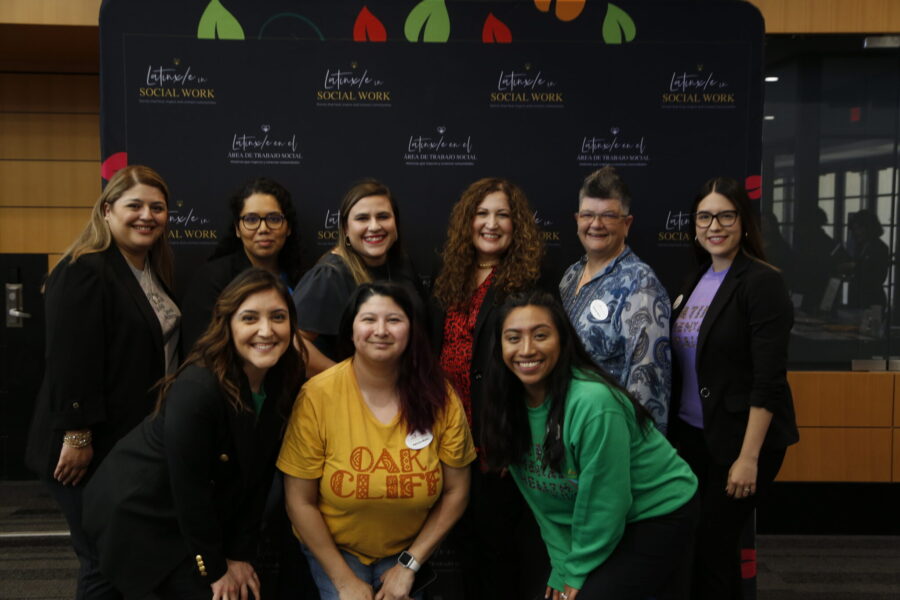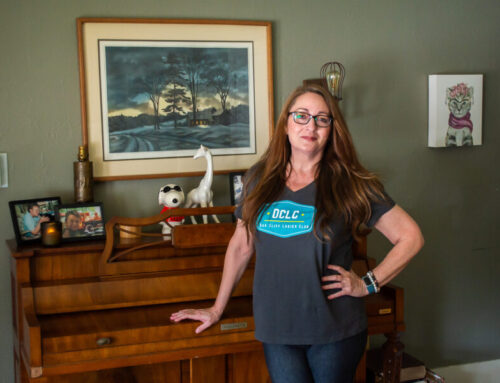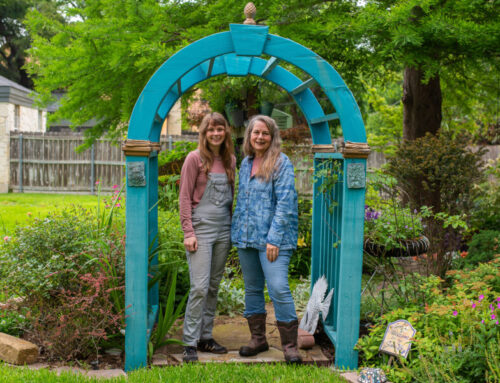The Cannenta Center for Empowerment is a culturally sensitive counseling and mental health center. Founded in 2021 by Dr. Leti Cavazos, the center comprises a diverse group of minority practitioners who understand the influences that have shaped clients’ life perspectives, including generational and cultural traumas. With an emphasis on inclusivity and trauma-informed care, the center offers services in English, Spanish, and ASL, with affordable prices, evening, and weekend hours, making counseling accessible to everyone who seeks it. The new Oak Cliff location is set to open in a month in Jefferson Tower.
Cavazos is dedicated to changing the stigma around mental health and raising mental health awareness in the Hispanic community through her life’s work. After receiving her Doctoral degree in social work from the University of Tennessee and working in nonprofit management, Cavazos realized that she was ready to build something she felt passionate about.
“I was a teen mom, and a single mom and ended up in a really abusive relationship. I didn’t know that there were programs out there to help me and so I think about how many individuals don’t know what’s available to them or are afraid to ask for help?” Cavazos said.
She said she felt that there was a gap in mental health servicing for marginalized communities in the Dallas area. Coming from a Hispanic background, Cavazos understood that within the culture, “everything’s built on relationships.” She said one of her main goals is getting involved with the community “because people need to know us before they’re going to trust us, so they can take that step to get help.”
Within the Hispanic community, mental health services are often overlooked or rationalized away. Services are not as readily available or accommodating to those who speak a different language, said Cavazos.
“The Cannenta Center was started to really serve the Hispanic community and offer services available in Spanish because we know that there’s a lot of dynamics that are unique to Hispanic culture, and we strive to view therapy through a trauma-informed lens, bringing culture into the therapy room,” she said. “We know from research that, if you receive services from somebody who looks like you and understands your culture, it’s more effective than if it’s somebody that’s from a different background. Every one of our clinicians are bilingual, and ready to serve.”
After noticing that a lot of her clients were traveling from Oak Cliff, Cavazos decided to go to where her help was needed most.
Cavazos said that by opening a location in Oak Cliff, she hopes to make it easier for clients to get the help they need with in-person sessions instead of making the drive to the Addison or San Antonio location, or restoring to virtual sessions.
“I have fallen in love with Oak Cliff the more time I spend there, and we’re hosting a conference in September there,” she said. “We’ve been in the neighborhood for a while, but just not physically there. So I asked myself, ‘why not be there?’ It just seems like the natural fit.”
The financial barrier is another hurdle many clients face when receiving professional counseling.
Alongside her mission to provide healing outlets, Cavazos established the Cannenta Foundation. This is a nonprofit that helps support clients who are uninsured by providing reduced-cost mental health sessions for adolescents and adults.
“With the reduced sessions, a lot of people are reaching out which tells me that people are ready for healing- they just don’t know how to get it or how to afford it,” Cavazos said.
The Cannenta Foundation’s two pillars are “Project Ayuda” and “Project Adelante.” “Project Ayuda” focuses on providing affordable, culturally sensitive services to clients and “Project Adelante” elevates bilingual clinicians in the community.
“We help aspiring, bilingual counselors each step of the way from completing required supervision hours to providing tutoring and funding for state testing,” Cavazos said. “We do everything we can to bring in more bilingual counselors to the community, and ‘Project Adelante’ elevates future therapists so that we elevate as a whole.”
To Cavazos, counseling means breaking down the stigma of mental health and redefining it as helping anybody that wants to reach their full potential.
She said one of the things that her distinguished counseling focuses on is understanding the role of machismo and marinismo in a Hispanic context. She said that counseling teaches communication, emotional management, and “learning how to do the things that you didn’t learn at home- setting boundaries, which is hard in the Hispanic community.”
“We also look at intergenerational cultural dissonance, where maybe the children are acclimating at a different rate than the parents. And then there’s maybe a friction between the two that the parents think that the children are losing their culture and they’re trying to figure out how to fit into both cultures. How do you help the family come to terms on both sides?” Cavazos said.
Last year, 90% of the center’s clients were first time therapy clients. Cavazos said those numbers tell her that there’s a need to be fulfilled in the Hispanic mental health arena. She said she wants her people to feel empowered because “we learned from a very young age that you just keep your head down and not to draw attention to yourself.”
“Healing shouldn’t be a luxury,” Cavazos said. “When we eliminate barriers, people really want healing. My hope is that we bring that healing to the Oakcliff community and that when we heal as individuals, we heal our families and we heal our communities.”







Leave A Comment